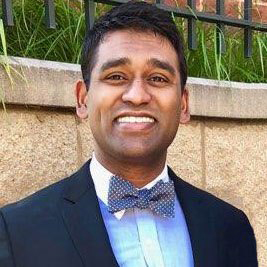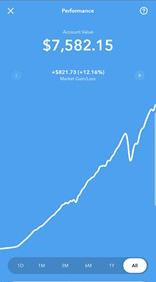Foolproof FIT Finance

If you are like the average trainee, you have a lot of debt. The latest numbers show that the average medical school debt is $201,490-$232,300 (1,2), and total student loan debt has doubled since around 1999 (3). Most finance books encourage readers to get out of debt as soon as possible; while this is typically good advice, future cardiologists have a unique situation. We have a few ways out of debt that others do not:
- Public Service Loan Forgiveness – After 10 years of qualifying payments while working for the government or qualified nonprofit organization.
- Hospital provided loan forgiveness – Depending on where you sign your first attending contract, there are some hospitals that are willing to pay back your loans for you.
- NIH Loan Repayment Programs – These programs will pay up to $50,000 annually of your qualified educational debt in exchange for NIH approved research.
Most finance books advise getting out of debt before saving money, which is generally good advice. However, since we have a large amount of debt and the aforementioned paths out of debt, starting to save money now makes sense.
The most basic money equation is this: save more than you spend. Our fellowship salary and time commitments make earning more money difficult; instead, focus more on saving money during fellowship rather than trying to earn more. Below are the methods I use to automatically save money and then forget about them –the set it and forget it method.
"Automatic" and "forget" are the key words that relieve the pain from the process of saving:
- Making the process automatic means that you don't feel the pain of prioritizing saving money over immediate gratification. It feels effortless because it is effortless.
- Forgetting about the accounts results in being pleasantly surprised by the amount of money you've saved when you look at your accounts.
- Setting and forgetting creates a positive feedback cycle that encourages you to keep saving. Once you get a good thing going, it's easy to build on this foundation.
Set It and Forget it: Two Easy Ways to Save Money While in Fellowship
The easy way: Acorns
I do not get any money from Acorns. I have a referral code but I purposely will not use it here.
Acorns is an app that I started using in 2017 to invest the spare change from day-to-day credit card purchases and put this money into the stock market. The money goes in automatically from the credit card that you link. You can also select for additional money to be siphoned away from your credit card, making saving more money automatic. The app provides different tiers of risk that you are willing to tolerate. Since it's pocket change, I selected the aggressive portfolio.
I started putting money away into this account during residency. I started with saving $50 per month plus whatever round-ups the app automatically adds. Over the years, I added more into my recurring deposits. Now, I've got $7582.15 in that account, $821.73 of which came from stock market gains, screenshot below (it was more; I didn't catch coronavirus, but my account did). Not too shabby for a trainee's salary.
Set it and forget it. Again, this is money that I essentially didn't know I had because I forgot about the account for months on end.
In terms of security, I've never had any issues. The app and website use SSL 256-bit encryption and bank-level security to keep your information secure. The FDIC insures your accounts up to at least $250,000 and the SIPC protects your accounts up to $500,000.

Another easy way, but more steps: high yield savings accounts.
High yield savings accounts used to be much better a few years ago. They have dropped their interest rates over the years, but they still beat traditional banks' rates. Start putting money away into these accounts to take advantage of a higher interest rate while building your emergency fund. Personally, I use Barclays online savings account and siphon money into that account automatically on a monthly basis.
I have not used all of the following banks, but the list below can get you started on your search for high yield bank accounts.
- Vio Bank - 0.76% APY, $100 minimum
- Citibank - 0.70% APY, $0 minimum opening deposit (only available in some states)
- Barclays - 0.60%, $0 minimum opening deposit, no fees. This is what I use. Again, even though I'd like to be paid for mentioning them, I'm not.
- There are plenty of other high yield savings accounts with varying levels of interest. Google is your friend.
Once you sign up, set up the account to automatically put money from your primary account into the savings account. Pick as much or as little money as you want. We're not aiming for large, sporadic deposits. I want you to consistently set aside a small, manageable amount of money and — here's the important part — leave it there. Over time, this will grow into a large sum of money.
The last step might be the most important - forget about these accounts. Knowing you have this money set aside makes it more likely to use it. Once you forget about the accounts, the system works for you automatically and you save money without even realizing it.
Congratulations, you have set up a system to create your safety net with as little pain as possible. Set it and forget it. Invest a little time and money now and reap the rewards later.
Remember: "The best time to plant a tree was 20 years ago. The second best time is now."– Chinese proverb

